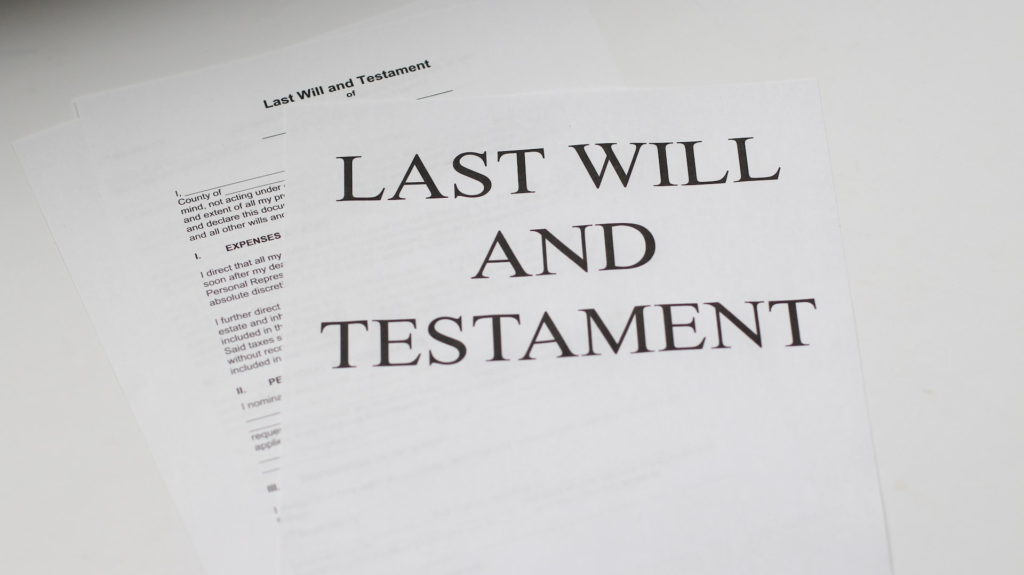
The importance of estate planning can’t be overstated. After all, it directly ensures that an individual’s assets are protected and properly distributed after their demise.
Unfortunately, not many realize how crucial this can be. That’s because most assume that estate planning is something only the super-rich do for their mansions, precious antiquities, and other prized possessions. When in reality, every person can benefit from it, despite it being something not necessarily pleasant to plan.
This also rings true for unmarried couples. Though cohabitation stats are increasing in Canada, not many couples plan for unexpected events. In fact, many cohabiting partners believe that estate planning in Canada only involves married people with two or more kids. In reality, experienced will and trust lawyers advise those committed long term or living together before marriage to be prepared for future challenges.
This blog post will be a detailed guide for estate planning for common-law partners. If that piques your interest, keep reading to learn more.
Defining Estate Planning
Estate planning is a legal process that includes setting up a plan to establish who gets to receive a person’s assets after they are no more. This can include their spouses, partners, children, other family members, or even organizations. The word estate comprises every possession the individual might have, such as their properties, bank accounts, cars, jewellery, life insurance, furniture, and any other asset.
Estate planning helps people set up how they wish their affairs would be handled when they can’t do it themselves. However, in case someone doesn’t have this written record of their decisions, probate courts deal with them instead. This often results in decisions that don’t necessarily reflect the wishes of the deceased.
Why Common Law Partners need to Have an Estate Plan
The reason why people from all backgrounds opt for estate planning is because it enables them to prevent unwanted inheritors. This is especially true for cohabiting partners. When people opt for it, they can still protect their partner’s rights by being prepared. That’s because the main component of estate planning is to designate heirs for assets. It’s highly unlikely that a deceased person’s unmarried partner will be given their rights without this record.
Think of it this way, common law partners usually buy a home together just as how most couples do. However, unless both of their names are listed for ownership, this can pose as a major problem for the surviving one. In the event, one of the partners dies, there are few chances the other will get the house during probate. This is true regardless of whether it goes against the deceased’s wishes. That’s because properties don’t automatically transfer to a common-law partner unless they have written their wishes.
As a matter of fact, in Ontario, common-law spouses are not typically treated the same as married ones. That’s because the definition of a spouse varies in the Succession Reforms Law Reform Act (Ontario) and the Family Law Act of Ontario. This inconsistency reveals that common-law partners don’t have property rights that married spouses do. As a result, the surviving partner of a common-law partnership will not get any assets. Instead, the entire estate is more than likely to be given to the closest blood relative. However, estate planning for a common-law partner is a great way to ensure the surviving one gains their rights.
Estate planning also saves a lot of time and money. After all, when someone dies without a will, courts determine what will happen to their assets or who will give them away. The job is usually given to the surviving spouse. Unfortunately, this isn’t the case for common-law partners.
When this happens, the court will either name a family member or a public trustee to distribute these assets. During the process, the estate is frozen so the surviving partner (and other family members) aren’t allowed to as much as touch the assets. If the deceased’s partner or family chooses to contest this decision, they usually end up wasting years going through trials that rack up large fees.
At this point, you might be wondering how to do estate planning for common-law partners. Below are listed some foolproof steps to help out.
Write Common-Law Partners in Wills
Before anything else, it’s imperative that common-law partners list each other on their wills. After all, these are deemed the single most important document when it comes to estate planning.
This written document is a record of an individual’s wishes and communicates their desires when it comes to the distribution of their property and other assets. Not only does it list the beneficiaries, but it also mentions guardians for the children and other specific instructions that can include funeral preparations.
This is why it’s unfortunate that most Canadians don’t have a will. As a matter of fact, the Angus Reid Institute reveals that a staggering 51 percent of people in Canada have no will or testament set for them. The study further stated that only 35 percent of individuals have a will that is up-to-date. With these statistics in mind, we can guess that very few Canadians might have listed their common-law partner in their wills. This is a big problem.
That being said, most experienced will and trust lawyers recommend common-law couples consult a lawyer for help. If a will is not properly drafted, it can fall into intestacy, which can mean that the probate court will make the decisions.
This leads us to our next point.
Choose Joint Tenancy to Hold Property
Another great way to ensure estate planning for a common-law partner is to opt for a joint tenancy to hold property. It is a type of ownership where two people are considered to have equal ownership of a property. The word tenancy here refers to ownership. This can especially prove beneficial when it comes to passing the real estate to a partner without them having to go through probate.
It’s imperative to note that joint tenancy means that both partners own the whole of the asset rather than a specific fractional share of it. As a result, when one of the joint tenants passes away, the asset doesn’t go to their personal representative. Instead, the surviving partner will automatically get the full property or interest.
The best part of joint tenancy is that the process is automatic, which means that the individual wouldn’t need wills or probate. In addition, passing the asset in question outside of will can help surviving partners avoid probate fees.
That being said, those opting for joint tenancy should note that the debts and any claims on the property will also be directed at the surviving partner. Instead, creating a revocable living trust with a common-law partner can ensure they inherit the asset without having to deal with any debts.
So, what are revocable living trusts?
Set Up a Revocable Living Trust
A revocable living trust is another method of estate planning for common-law partners that involves setting up a trust while one’s still alive. Similar to a will, individuals establish it to distribute assets, but it is done during their lifetime. However, the assets are managed and controlled by the person who sets them up.
The reason why many people opt for revocable living trusts is that it prevents the assets from being passed into probate. Another great advantage of this process is that it keeps the record private. All these reasons (and more) make it far more challenging to contest it successfully.
Setting up a will or a trust can be a difficult process. However, it doesn’t have to be this way. Hiring qualified and experienced legal assistance can ensure everything is a breeze and there are no hurdles in the way.
The knowledgeable lawyers at Nanda & Associate Lawyers are well-informed about issues that can come up when it comes to estate planning for common-law partners. Our experienced estate and wills lawyers in Brampton and Mississauga can enable individuals to easily create, sign, and execute a Last Will and Testament. More than that, our staff also helps in cases of trust disputes, such as trust interpretation, trustee and executor disputes, estate items evaluation, executor accounting challenges, undue influence, and more.
In addition, our lawyers are present to create a tailored solution depending on the client’s specific situation. Our will and estate lawyers also speak more than a dozen languages, which helps us easily provide clients with effective solutions. After all, we’re committed to ensuring our clients know their rights and can fight for them.
Book an appointment with us today, or contact us to learn more about our estate and wills lawyers in Mississauga.
Disclaimer: This article is only intended for educational purposes and shouldn’t be used as a substitute for legal advice.










